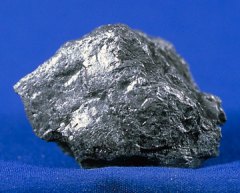What is the difference between a hunk of graphite and a brilliant diamond? Graphite and Diamonds are allotropes of Carbon, meaning that they have the same elemental composition but are structured differently which gives them different properties. A diamond starts out as a growth of carbon in a high-pressure, high-temperature environment about 100 miles beneath the Earth’s surface.
The extremes in pressure and temperature cause the carbon elements to form strong bonds and to create the crystal structure. Then deep volcanic eruptions of magma bring the diamonds close to the Earth’s surface where they can be mined as “rough diamonds.” Rough diamonds are not brilliant and can have a greasy appearance, but they are still very valuable.
A “rough diamond” is then carefully considered and studied to determine the best way to cut and polish it in order to preserve the most weight. The diamond is first sawed into individual pieces for further refining. This is a long and tedious process because of how hard diamonds are (sometimes taking up to 20 hours just to cut). The individual pieces are then “roughed out” where individual, preliminary facets are cut into the diamond. After being roughed, the diamonds then go through a “bruting” process where the diamond is shaped into a round outline. Finally, the diamond goes through a “girdling” process whereby the final facets are ground into the gem and then it is polished into a brilliant diamond.
This process brings out the most desirable properties in the diamond and makes it so valuable. Diamonds are the hardest known, naturally-occurring substance, which means they don’t scratch or lose their luster easily. They also have excellent optical properties and reflect light. Additionally, diamonds are highly stable, which means that they don’t react with other elements.
Heavenly Father wants all of us to become diamonds in His kingdom. He wants us to bring out our most desirable qualities. He doesn’t want us to turn easily from the path of righteousness or to be distracted by other Earthly influences. He wants us to reflect light, His light, and He wants us to be highly stable in doing what is right. We are precious to Him and He wants us to become brilliant.
Joseph Smith has been quoted as saying:
“I am like a huge, rough stone rolling down from a high mountain; and the only polishing I get is when some corner gets rubbed off by coming in contact with something else, striking with accelerated force…Thus I will become a smooth and polished shaft in the quiver of the Almighty” (Teachings of the Prophet Joseph Smith, p. 304)
In other words, the prophet Joseph Smith recognized the trials and persecution that beset him as opportunities for refinement. The truth of the matter is that trials are a part of life and everyone experiences them: “And we will prove them herewith, to see if they will do all things whatsoever the Lord their God shall command them.” (Abraham 3:25). However, the Lord has promised us that, “after much tribulation come the blessings” (Doctrine and Covenants 58:4) and that “all these things shall give thee experience, and shall be for thy good.” (D&C 122:7). Our dear Father in Heaven has a way of turning all the things that we suffer, all the pain that we feel, all the things that challenge our faith, and all the things that try us into blessings.
This isn’t to say that all trials come from our Heavenly Father. The scriptures say we have been created, “to act for [our]selves and not to be acted upon.” (see 2 Nephi 2:26). In other words, we have been given our agency, or the freedom to choose. With that freedom comes the ability to make bad decisions, which cause us to suffer. It also enables us to make bad choices which cause others to suffer. Somehow, in God’s economy, all these experiences can turn out for our good if we continue with faith in our Savior.
So the next time you feel the pressure and the heat; when you feel like life is carrying you away as if in a violent eruption of magma; when you feel the cutting, the roughing, the bruting, the girdling, or the polishing; think of our Savior and what He has done for us and that these experiences are only bringing out the best in you. Have a superb week!
Sources:




